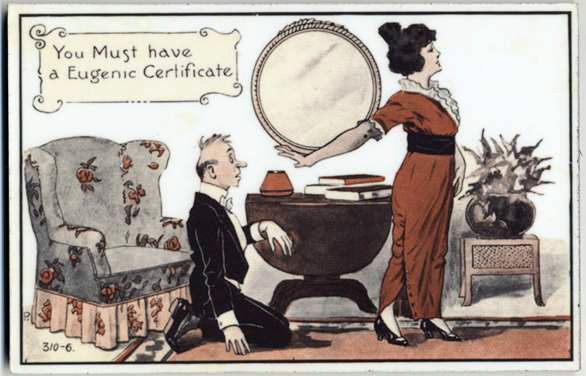
Making eugenics acceptable again
A critic of the bad old eugenics embraces the good new eugenics.

Gene editing technology will inevitably lead to eugenics – and that’s a good thing, says Adam Cohen, the author of ”Imbeciles: The Supreme Court, American Eugenics, and the Sterilization of Carrie Buck”.
Cohen’s book relates the tragic story of a young woman from Virginia who was forcibly sterilised. Her case went all the way to the US Supreme Court, which concluded, in the notorious words of Justice Oliver Wendell Holmes, “Three generations of imbeciles are enough.” That case marked the highwater mark of the American eugenics movement. But Nazi atrocities almost completely discredited the idea.
However, writing in an op-ed for the Los Angeles Times, Cohen, like an increasing number of bioethicists, distinguishes between “bad eugenics” and “good eugenics”. The former is totalitarian and involuntary; the latter is individual and discretionary. He strongly supports the idea of “embryo editing”: “This time around, eugenics could be a force for good.”
… we should also recognize that there is a crucial difference between the old eugenics and the new. Rather than demonizing “unfit” people and working to sterilize them, the new eugenics regards their inherited disabilities as treatable medical conditions and seeks to help them have healthy children.
https://www.bioedge.org/images/2008images/TH_eugenics_certificate.jpg
Creative commons
https://www.bioedge.org/images/2008images/eugenics_certificate.jpg
eugenics
More Stories
Owner of castration website in UK found guilty of grievous bodily harm
“Enhancement” normally connotes adding powers beyond normal human functioning. However, there are dark kinds of enhancement which remove them. A...
Quebec man has two healthy fingers amputated to relieve ‘body integrity dysphoria’
Doctors amputated the healthy fourth and fifth fingers of the left hand of a 20-year-old Quebec man because he believed...
Is ‘heightism’ the last socially acceptable prejudice?
You may remember Robert Reich, Secretary of Labor from 1993 to 1997 in the cabinet of President Bill Clinton. His distinguished career...
Canada has a dark past as a champion of eugenics for the disabled
Canada is acquiring a reputation for being the most progressive place on the planet for euthanasia. An article in the...
A boost for cryonics? After 46,000 years in Siberian permafrost, nematodes can revive
In a ground-breaking discovery published in the peer-reviewed journal PLOS Genetics, scientists have found that tiny roundworms, known as nematodes,...
Driven mad by eugenics: a true crime drama from Spain
Eugenics with assisted reproduction technology is not new. Francis Galton, Charles Darwin’s cousin, devised schemes for making higher and lower...
